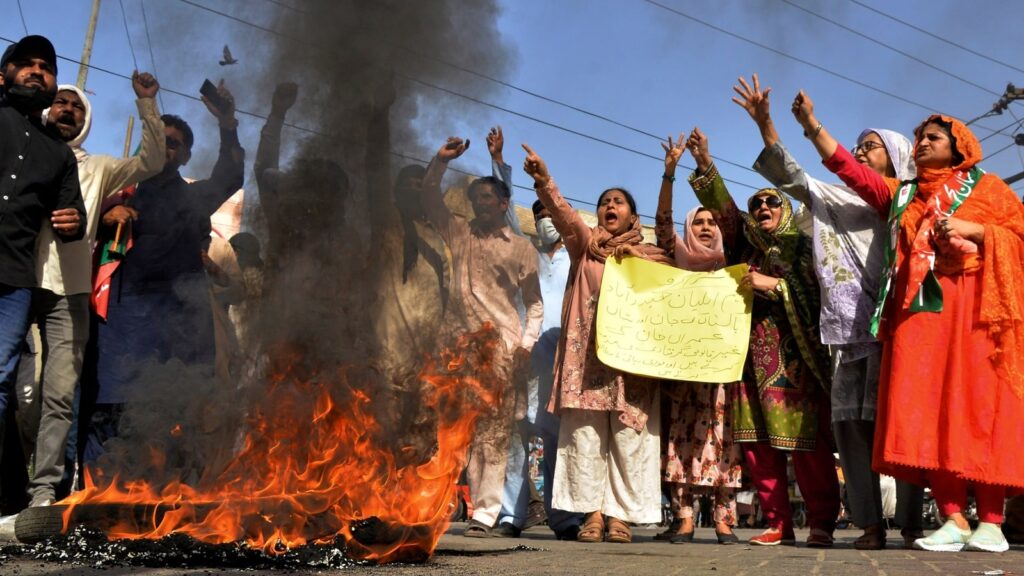After weeks of dithering, Pakistan’s ruling establishment appears to have finally bitten the bullet. In a dramatic operation, Pakistan’s anti-graft watchdog arrested former Prime Minister (PM) Imran Khan at Islamabad high court. Footage of the arrest showed scores of security personnel in riot-control gear whisking Mr Khan away in a van even as supporters of his Pakistan Tehreek-i-insaf party went on a rampage. The arrest by the National Accountability Bureau (NAB) marks a dramatic escalation in Pakistan’s already turbulent politics. It shows Mr Khan’s rivals, PM Shehbaz Sharif and foreign minister Bilawal Bhutto Zardari, may have finally decided that allowing the charismatic former cricketer to continue mobilising street support was too electorally risky. The churn is made all the more volatile by the current state of the nation’s traditional power arbiter, the Pakistani army. Facing a volley of criticism by Mr Khan, the army finds its stock at an all-time low. How General Asim Munir reacts to the situation will be key, as will pronouncements by an increasingly strident judiciary.
Such a vortex of developments is enough to push any country into a tailspin. But in Pakistan, it is coming on top of the worst economic crisis in a generation that’s crimping incomes and sending prices skyrocketing. An IMF bailout has been months in the making. Governance appears to be in limbo. This paralysis of policy and politics bodes well for no one in South Asia, least of all India. As Pakistan’s elections sneak closer, New Delhi should keep an eye on extremism and the cross-border ceasefire that has endured a chill in bilateral ties.

